We Can Make a Difference! A critical reflection of the SDGs
No Poverty. Zero Hunger. The United Nations’ Sustainable Development Goals are extremely important, but their sheer size and scope makes it hard for them to feel actionable on a personal scale. As an individual, not a corporation, NGO or nation, what can I even do to ensure that there is no poverty and zero hunger? Donating money is fine, and truly helps, but I would like to do more. Something where I can make more of a tangible difference.
That is what I was wondering when I first saw the UN Sustainable Development Goals. You may have wondered the same thing.
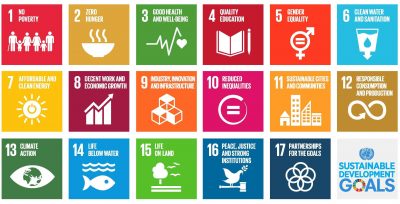
If you are not familiar with the UN Sustainable Development Goals, they are a set of 17 goals crafted by the UN in 2015 that are “the blueprint to achieve a better and more sustainable future for all.” Rather than just focus on environmental sustainability, they cover an extensive array of challenges that we face as a global society. They are about important issues like empowering women, providing education and standing up for human rights.
So, how can you apply these goals to your everyday life? Here are some ways I have incorporated them into my own life that you could do as well – starting from today. You might already be doing them without knowing it.
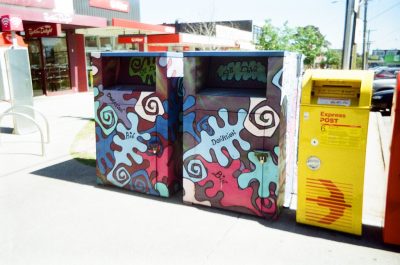
You can find donation boxes in many different places, such as shopping centres, churches or parks.
“Colourful donation bins” by Matthew Paul Argall is licensed under CC BY 2.0
Donating what you don’t use – Goal 1: No Poverty
This may seem a bit simple and unimportant, but it can really help to improve the lives of those in need. By donating items that you may otherwise just leave lying around indefinitely or throwing in the bin, you can help to achieve the first goal of no poverty. Basically, one man’s trash is another man’s treasure. In the past, I have donated clothes that no longer fit and unwanted Christmas presents. You could also donate unopened food items (that have not expired), electrical goods and even furniture.
Buy food consciously – Goal 2: Zero Hunger
A staggering third of the world’s food production is wasted. Unfortunately, the current benefits that we have when it comes to food, of constantly full shelves stocked with goods from around the world, do not apply to everyone. Hundreds of millions of people around the world wake up hungry and go to bed hungry. I have tried to reduce my own food wastage by buying products that are an appropriate size and saving leftovers whenever I can.
I also have a helpful tip to reduce food wastage AND save money. Often if you go to supermarkets, bakeries and other shops late at night you can find items that are heavily discounted because their best-before or use-by date is coming up soon. If you find something that you will eat, by buying it you can get a good deal and help reduce food wastage as the item will most likely by thrown out if unsold.
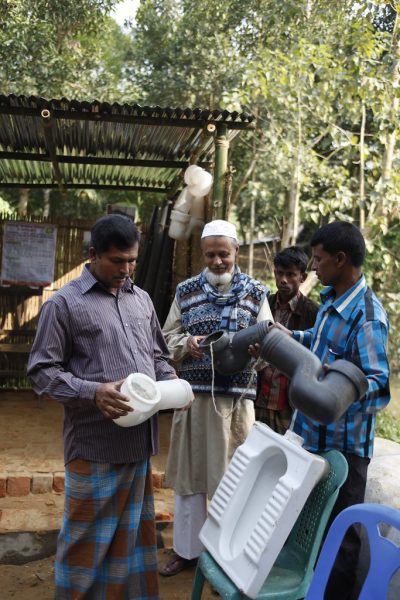
“Sanitation Entrepreneurs” by World Bank Photo Collection is licensed under CC BY-NC-ND 2.0
Turn that tap off! – Goal 6: Clean Water and Sanitation
Despite all the differences between people, geographically and otherwise, one thing we all have in common is that we need water to live. While we in urban Australia take clean drinking water for granted – it’s as easy as turning a tap on – billions of people in the world do not have access to clean drinking water and sanitation. To help reduce water wastage, consider taking shorter showers, turning the tap off while you brush your teeth and using water from a water tank to nourish your garden.
As well as helping to reduce water consumption, you can also help to improve the sanitation of waterways. This can be achieved by not leaving your human waste near waterways, not littering and not supporting companies that have a record of being pollutants. I have been conscious of my own acts so that I do not have a negative impact on waterways, whether it is a lake, river or the ocean.
Be energy conscious – Goal 7: Affordable and Clean Energy
Whilst the usage of renewable energy is increasing in Australia, a lot of our energy production is still generated from fossil fuels and other sources that do irreparable damage to the environment. Three billion people in the world still rely on energy generated from wood, coal, charcoal or animal waste to cook food and heat their homes. These types of energy sources have negative health effects on people who are in close proximity to them as well as the planet as a whole.
In my house, I make sure to turn lights and appliances off when I’m not using them. Doing this is of little inconvenience and helps to reduce power bills. You can also be energy conscious by using renewable energy sources when possible. This can be as simple as buying a solar-powered phone charger or as large as buying an electric car (if only I could afford a Tesla…).
Take a walk – Goal 11: Sustainable Cities and Communities
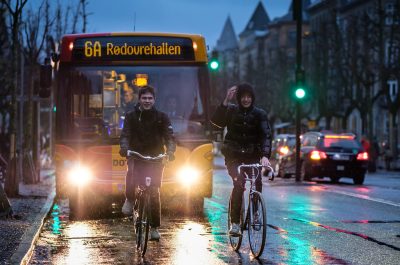
“Bikes on Frederiksberg Allé in the Rain, Copenhagen, Denmark (København, Danmark)” by Kristoffer Trolle is licensed under CC BY 2.0
As more and more people have moved from a rural setting into an urban one, every city around the world has had to plan to avoid inadequate and overburdened infrastructure and services. For poorer countries this has led to large numbers of slum dwellers and abhorrent poverty. More fortunate cities still face the issues of overcrowding and chronic traffic.
Walking instead of driving goes a long way to helping improve the wellbeing of your city. You can also ride a bike or take public transport to help reduce congestion. I find that a great way to feel less guilty about eating a really unhealthy meal (usually deep-fried) is to walk to and from the restaurant.
To help those who are in poverty, consider volunteering at a homeless shelter or another similar organisation. These types of places are always looking for new people to help make their city a better place for everyone in it.
Reduce, Reuse, Recycle – Goal 12: Responsible Consumption and Production
I have already talked about ways in which you can help to reduce food wastage and your water and energy consumption. By reducing, reusing and recycling other types of materials, such as those made from paper, plastic, glass and aluminium, you can help to ensure sustainable consumption and production patterns.
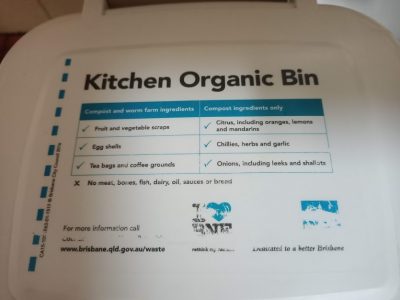
Depending on the type of compost you want different food items should be placed into the bin. This is a helpful guide for what you should put in.
I do this, as you can too, by putting those materials into a recycling bin and putting appropriate food wastage into a compost bin. When buying products, consider buying those which use less unnecessary packaging that will just go straight in the bin. For example, a packet of lollies where every single lolly is individually wrapped.
You can not only be sustainable by recycling but also make some money as well. In Queensland, New South Wales, Australian Capital Territory, South Australia, Northern Territory and Western Australia you can deposit most glass, plastic and aluminium containers and get paid for your troubles. At 10 cents a can in Queensland, I have been able to make quite a bit of pocket money from depositing containers. From just one party the money starts to add up. There is also plans to introduce container depositing in Victoria and Tasmania in the near future.
Although I’ve listed quite a lot of different ways you can help to fulfill the United Nations’ Sustainable Development Goals, there are still many more ways you can take action to help make the world a better place. Have a chat with your friends and family about how we can all contribute to make a more sustainable future. You might be able to provide them with some helpful tips and they might be able to provide you with some. I know that I learnt a thing or two by doing this. Remember: the best thing is that you can start today.
